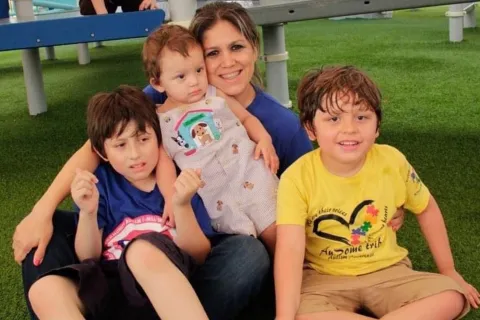Tips for effective parent-teacher communication
Effective communication with your child’s teacher is instrumental to your child’s success. The basic rules are simple.
Assume positive intent, always. Your child’s teacher wants the same for your child as you do.
Promote partnership. After all, your child could spend an equal number of waking hours with them as with you. It is important to develop a working relationship then.
Be open. Neither you nor your child's teacher should ever walk into a parent-teacher conference or IEP or 504 meeting and be surprised.
Documentation will be key. Here are some tips to get your started:
Establish a preferred communication method
For routine feedback, share what works best for you and ask your child’s teacher what works best for them. Give options and ask them for options so you can find something that works best for both of you. Whether you want a daily email or weekly call, set some boundaries for when communication is ok and when it is off-limits. For instance, you should not expect communication during the class day, unless there is an urgent matter. You most like will have to communicate during off school hours, but you should absolutely respect a teacher’s personal time, too.
If you find that you are not receiving enough information in a timely manner, you may need to re-establish priorities to be communicated, which leads to…
Decide on what information is most important
Determine the most important things you need to know about your child and then asks for specifics about them. Do not be vague or leave room for interpretation. For instance, do not ask for a rundown of their day.
Instead, if it is important to know if your child stayed focused on instruction or tasks, ask for that. As well, if the answer is no, ask the teacher to provide the specifics about the task or instruction, including the time of day and where your child was sitting. This way, you can both look for possible patterns. Alternatively, if your only reason to know if your child finished their snack is to better budget for groceries, do not ask your teacher to keep track of that.
Remember: Social time is also learning time
Snack time is an important component of social learning though. So, it is ok for you and the teacher to keep track of who your child sat with at snack and lunch. Do they gravitate to any one kid or group? Do they share or ask a friend to share with them – whether it be a snack or even back-and-forth questioning? If they keep to themselves, what is their mood? Do they play at recess? With other children, or alone?
If you have concerns about your child’s social development, you should also tell your child’s healthcare team and loop your teacher in on any advice they have.
Keep the teacher informed, too
School doesn’t end when the dismissal bell rings. If your child is coming home and complaining about someone or something in school which the teacher has not brought to your attention, and especially if they are showing distressing behavior about that person or thing, bring it up to the teacher. Try to document as much as you can from your child and about their behavior, first. Then present that to the teacher. If you have similar experience from a prior school year or situation, you can provide that perspective, too. But do not insert your own speculation or accusation about what you think happened or is happening. Give the teacher a chance to process the information, and respect that they may need to involve school administration if the matter involves bullying or another teacher.
Additionally, if your child’s behavior is changing at home – for instance, they have stopped eating, sleeping, wanting to go to school – or if any major life event is taking place, let your child’s teacher know. Always update the teacher on relevant new medical issues. Again, loop your teacher in if your child’s healthcare team raises any issues or concerns.
Don’t forget the good stuff
Do not leave the good stuff for “last but not least.” Both you and your child’s teacher should always look for the good. Because after all, your child is first and foremost good.
It is just as important to your child’s development to document their wins, no matter how big or small. You cannot measure their progress without also monitoring their goodness; both good and bad days should lead to productivity.








